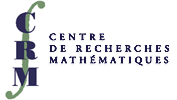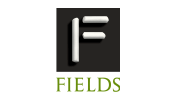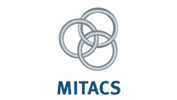 |
|
||||
Org: Yuly Billig (Carleton) and Alistair Savage (Ottawa)
[PDF]
- BRUCE ALLISON, University of Victoria
Multiloop Lie algebras of nullity 2 [PDF] -
Extended affine Lie algebras of nullity 2 have been studied from several points of view: axiomatically, as multiloop algebras of nullity 2, and as loop algebras of affine Lie algebras. In this talk we describe the precise relationship between the classes of algebras obtained in this way, and we describe their classification up to isomorphism.
The talk will be based on joint work with Stephen Berman and Arturo Pianzola.
- YURI BAHTURIN, Memorial University of Newfoundland
Functional Identities and Graded Lie and Jordan Algebras [PDF] -
I will talk about a new approach to the study of gradings on simple Lie and Jordan algebras of not necessarily finite dimension over fields with minor restrictions on the characteristic of the field of coefficients. The main tool is Functional Identities described in a 2007 Birkhauser monograph under the same title by Bresar-Chebotar-Martindale. The new results about the gradings are contained in papers joint with Matej Bresar and Ivan Shestakov.
- ELAINE BELTAOS, Alberta
-
- GEORGIA BENKART, University of Wisconsin-Madison, Department of Mathematics, 480 Lincoln Dr., Madison, Wisconsin 53706, USA
Finding the Onsager algebra in all the right places [PDF] -
In a seminal paper in 1944, Onsager introduced an infinite-dimensional Lie algebra, now referred to as the Onsager algebra, and used it to compute the free energy of the two-dimensional Ising model in statistical mechanics. In this survey talk we will discuss how the Onsager algebra arises in the study of loop algebras and their invariants under certain automorphisms.
- SANDEEP BHARGAVA, Windsor
-
- SABIN CAUTIS, Rice University, Houston, TX
Categorical Lie algebra actions [PDF] -
One can think of a semisimple Lie algebra g as a category C(g) where the objects are the weight spaces and the morphisms are maps between the weight spaces. In this language a representation of g is a functor to the category of vector spaces. Of course, the 1-morphisms in C(g) have to satisfy some relations (such as [e,f] = h) so C(g) should also be equipped with 2-morphisms (such as a map [e,f] ® h) which induces these relations. This suggests that C(g) ought to be a 2-category where a representation is a functor from C(g) to another 2-category.
We briefly illustrate this concept with a representation of the 2-category sl2 constructed from cotangent bundles of Grassmannians. We call this a categorical sl2 action. More generally one can construct categorical g actions on quiver varieties (here g is a Kac-Moody algebra).
This is joint work with Joel Kamnitzer and Tony Licata.
- IVAN DIMITROV, Queen's University
Weight modules of affine Lie algebras [PDF] -
The problem of classifying irreducible weight modules with finite dimensional weight spaces over affine Lie algebras has been studied actively for the last 20 years. Notable results include the classification of integrable modules by V. Chari, the study of parabolically induced modules by V. Futorny, and the study of uniformly bounded modules by D. Britten and F. Lemire. Apart from partial classification results, two important classes of irreducible weight modules with finite dimensional weight spaces were singled out. Roughly speaking, these are the parabolically induced modules and the loop modules. Several authors made conjectures that would imply that these exhaust all irreducible weight modules with finite dimensional weight spaces. Dimitar Grantcharov and I recently proved a theorem which confirms these conjectures and as a result completes the classification. I will present the main ideas and results from this work.
- YUN GAO, York University
A quantized Tits-Kantor-Koecher algebra [PDF] -
We propose a quantum analogue of a Tits-Kantor-Koecher algebra with a Jordan torus as an coordinated algebra by looking at the vertex operator construction over a Fock space.
This is a joint work with Naihuan Jing.
- JOEL KAMNITZER, University of Toronto
MV polytopes and components of quiver varieties [PDF] -
A number of interesting bases exist for the upper half of the universal envelopping algebra of a semisimple Lie algebra. One such basis is Lusztig's semicanonical basis which is indexed by components of quiver varieties. Another interesting basis is indexed by Mirkovic-Vilonen cycles which lead to the combinatorics of MV polytopes. In this talk, I will explain a natural bijection between the components of quiver varieties and the MV polytopes.
This is joint work with Pierre Baumann.
- MIKHAIL KOCHETOV, Memorial University of Newfoundland
Group gradings on Lie algebras of Cartan type [PDF] -
We are interested in describing all group gradings on simple Lie algebras over an algebraically closed field F, i.e., vector space decompositions of the form L = Åg Î G Lg where G is a group and [Lg,Lh] Ì Lgh. In the case charF=0, all gradings on the classical simple Lie algebras (except of type D4) have been described in the works of J. Patera, H. Zassenhaus, M. Havlícek, E. Pelantová and Yu. Bahturin, M. Zaicev, I. Shestakov. It turns out that the description given by the latter group of authors is also valid in the case charF=p > 0, p ¹ 2, as shown by Yu. Bahturin, S. Montgomery and the speaker. In this talk we will discuss recent progress in the classification of group gradings on Lie algebras of Cartan type in characteristic p.
The results are joint work with Yu. Bahturin and J. McGraw.
- MICHAEL LAU, University of Windsor, Windsor, Ontario
Modules for Twisted Multiloop Algebras [PDF] -
Let g ÄC [t1±1,...,tN±1 ] be the Lie algebra of polynomial maps from the N-torus to a finite-dimensional simple Lie algebra g. Twisted multiloop algebras are fixed point subalgebras determined by any family of N commuting finite order automorphisms of g. In this talk, we describe the finite-dimensional simple modules of twisted multiloop algebras and classify these representations up to isomorphism.
- JUN MORITA, University of Tsukuba, Tsukuba, 305-8571, Japan
Moody's conjecture (II), from derivations to automorphisms [PDF] -
Let g be a Kac-Moody algebra over a field of characteristic 0 defined by a generalized Cartan matrix A, and let b+ be the standard Borel subalgebra with its nilradical n+ = [b+,b+]. Then, we can determine Der(n+), which gives an answer to the so-called Moody's conjecture posed about 30 years ago. Using the structure of Der(n+), we can also determine Aut(n+) if A is symmetrizable. The main idea is to study ad(b+) Ì Der(n+) and Aut( ad(b+) ), which implies that Aut(n+) = Aut(A)B+ if A is symmetrizable, indecomposable and of infinite type, where Aut(A) is the Dynkin diagram automorphism group, and where B+ is the standard Borel subgroup of the corresponding adjoint Kac-Moody group.
This talk is a part of the joint work with Kaiming Zhao, which is referred to in our paper entitled "Automorphisms and derivations of Borel subalgebras and their nilradicals in Kac-Moody algebras".
- ERHARD NEHER, University of Ottawa
Universal central extensions of multiloop algebras [PDF] -
Loop algebras and their twisted versions are a basic ingredient in the construction of affine Kac-Moody algebras. Multiloop algebras are higher nullity generalizations of (twisted) loop algebras: instead of Laurent polynomials in one variable one uses Laurent polynomials in n variables, and instead of a diagram automorphism one uses a family of n commuting finite order automorphisms. Multiloop algebras are important for the construction of extended affine Lie algebras.
In the talk I will describe the universal central extensions of multiloop algebras.
- ARTURO PIANZOLA, University of Alberta, Edmonton
Derivations of certain algebras given by étale descent [PDF] -
The structure of the algebra of derivations of a multiloop algebra has recently been determined by S. Azam. Azam's proof, which is motivated by earlier work of G. Benkart and R. V. Moody, is rather involved and depends on a delicate induction reasoning. In this talk we will present a direct reasoning that yields an explicit description of the algebra of derivations for a large class of algebras defined by étale descent (of which multiloop algebras are a very special case). This description of the algebra of derivations of multiloop algebras has recently been used by E. Neher to give a very nice construction of universal central extensions of Lie tori.
- HADI SALMASIAN, University of Windsor, Windsor, ON
Structure and geometry of direct limit Lie algebras [PDF] -
Recently there has been growing interest in structure theory, representations, and geometric phenomena associated to locally finite Lie algebras, e.g., direct limits of classical and loop algebras. Remarkable examples include Borel-Weil-Bott theory and the structure of weight modules (studied by Dimitrov, Neeb, Penkov, Wolf,...).
In this talk I will begin by discussing suitable notions of Cartan and Borel subgroups/subalgebras in infinite dimensions. Next, I introduce certain B-modules associated to line bundles on B-stable ind-varieties in infinite Grassmannian. These B-modules are natural analogues of Demazure modules for classical direct limit ind-groups. I will state a theorem which connects the geometry of these B-stable varieties to finiteness of weight multiplicites of associated Demazure modules.
Finally, for the case of direct limits of loop algebras, I study conjugacy of maximal tori and their corresponding root systems. I state a theorem which answers this classification problem completely. Somewhat surprisingly, the theorem links conjugacy to classical K-theory.
- PRASAD SENESI, University of Ottawa, 585 King Edward Ave., Ottawa, ON, K1N 6N5
Finite-dimensional loop-highest weight representation theory [PDF] -
Let g be a simple complex finite-dimensional Lie algebra, s a diagram automorphism of g and L(g)s the corresponding twisted loop algebra. Some aspects of the finite-dimensional representation theory of these twisted loop algebras are now well understood. In particular, the universal `loop-highest weight' Weyl modules and simple modules have been described, as have the blocks of the corresponding (non-semisimple) category. The loop-highest weight representation theory of L(g)s is used extensively for these results. We will discuss possible extensions of this theory to the multiloop generalizations of L(g)s.
- PETER TINGLEY, University of Melbourne, Ausralia
Half twist type formulas for the R-matrix [PDF] -
The category of representation of Uq(g) can be used to construct invariants of oriented framed links, where g is a complex simple Lie algebra, and Uq(g) is the corresponding quantized universal enveloping algebra. In the standard approach to the subject, a 360-degree twist has an interpretation in the category, but a 180-degree twist does not. Using a formula for the R-matrix due to Kirillov-Reshetikhin and Levendorskii-Soibelman, we explain how this 180 degree twist can be interpreted. We then modify of this construction to give a new formula for the R-matrix of any symmetrizable Kac-Moody algebra.
This includes joint work with Noah Snyder.
- ANGELIKA WELTE, University of Ottawa
Universal central extensions of psl3 (A), A alternative [PDF] -
We describe the universal central extension of psl3 (A) for an alternative k-algebra A (e.g. A associative). Our results generalize the work of Gao and Shang published in 2007 (J. Algebra) and of vanderKallen published in 1973 (Lecture Notes in Mathematics). In particular, we will discuss the case where A is an octonion algebra.
- WAI LING YEE, University of Windsor, 401 Sunset Ave, Windsor, Ontario, N9B 3P4
Generalized Harish-Chandra Modules [PDF] -
Two major tools in representation theory are:
(1) restricting representations to compact subgroups since the representation theory of compact groups is well understood (this leads to the category of Harish-Chandra modules) and
(2) exploiting joint eigenspaces of a Cartan (weight theory, which leads to Category O).This is joint work with Annegret Paul and Siddhartha Sahi.
- KAIMING ZHAO, Wilfrid Laurier University
Moody's Conjecture [PDF] -
Let g be a Kac-Moody algebra over a field of characteristic 0 defined by a indecomposable generalized Cartan matrix A, and let b+ be a standard Borel subalgebra with its nilradical n+ = [b+,b+].
Derivations Der(b+) and Der(n+) in case of finite type were given in B. Kostant (Ann. of Math. 74(1961), 329-387) and G. F. Leger and E. M. Luks (Trans. Amer. Math. Soc. 195(1974), 305-316). In 1980, R. V. Moody (Proc. London Math. Soc. 40(1980), 430-442) conjectured that Der(n+) is equal to ad(b+)|n+ when A is not of finite type. When A is of affine type, Der(n+) was obtained in A. Fialowski (Adv. Math. 97(1993), 267-277). I will talk about Moody's Conjecture for the remaining case, A is of indefinite type.
This talk is part of the joint work with Jun Morita entitled "Automorphisms and derivations of Borel subalgebras and their nilradicals in Kac-Moody algebras".





